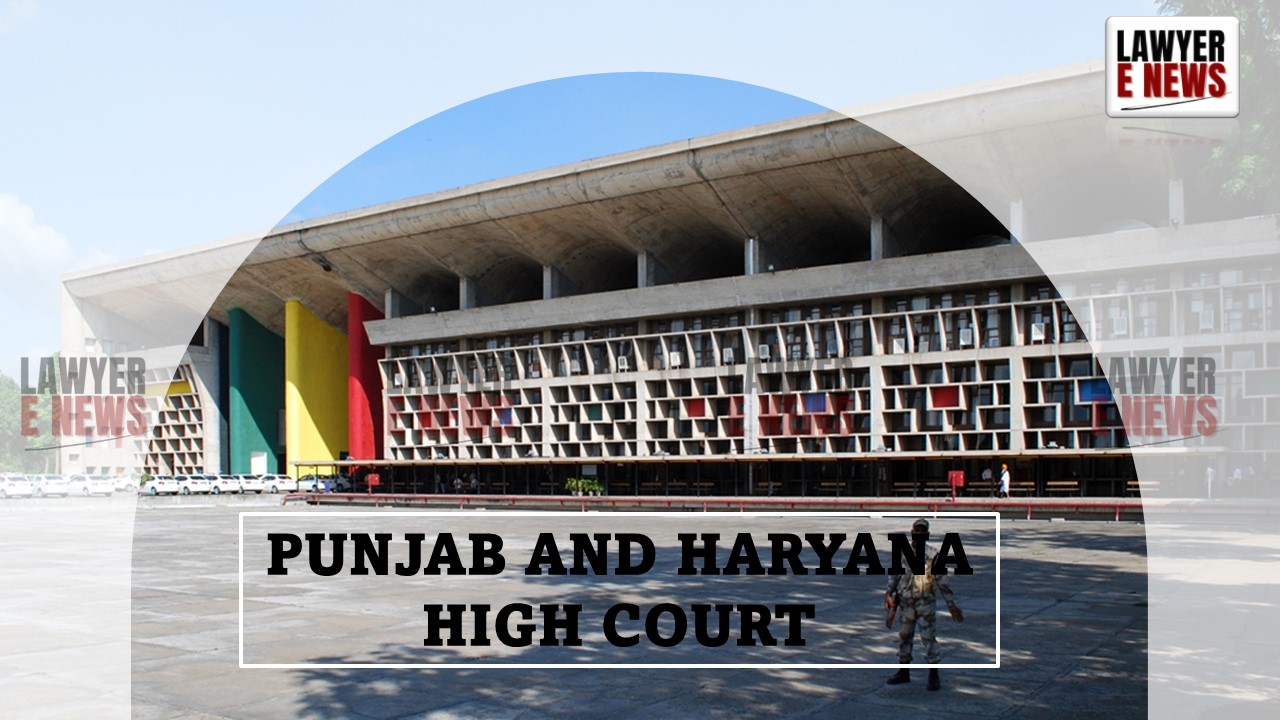-
by Admin
15 February 2026 5:35 AM



In a recent ruling, the Punjab and Haryana High Court dismissed a petition seeking cancellation of anticipatory bail granted to an accused in a Rs. 20 lakh fraud case. The decision, delivered by Justice Manjari Nehru Kaul, emphasized that bail should not be canceled lightly and must be reserved for cases where there is concrete evidence of misuse, interference with the investigation, or a significant change in circumstances. The court reinforced the importance of safeguarding personal liberty and cautioned against the arbitrary revocation of bail.
The petitioner, Jashpal Singh Malik, had approached the High Court under Section 483(3) of the Bhartiya Nagrik Suraksha Sanhita, 2023, seeking to cancel the anticipatory bail granted to the respondent, who is accused of defrauding the petitioner of Rs. 20 lakhs. The case involves allegations under Section 420 of the Indian Penal Code, 1860 (IPC), relating to cheating and dishonesty. The petitioner alleged that the trial court failed to adequately consider the gravity of the allegations before granting bail.
According to the petitioner’s counsel, the respondent had received Rs. 15 lakhs via RTGS transfer and another Rs. 5 lakhs through a promissory note. Despite this, no recovery had been made, and the respondent’s cheque for Rs. 15 lakhs, issued to settle the amount, was dishonored upon presentation. The petitioner argued that the trial court’s order granting anticipatory bail was erroneous and that the accused should be taken into custody to ensure recovery of the alleged defrauded amount.
After hearing arguments from both parties, the High Court made several key observations:
Bail Cancellation Criteria: Justice Manjari Nehru Kaul underscored that bail granted to an accused should only be canceled under specific circumstances, such as if the accused misuses the bail, interferes with the investigation, tampers with evidence, or intimidates witnesses. The court clarified that anticipatory bail cannot be canceled simply because the accused has not yet repaid the alleged defrauded amount.
Personal Liberty as a Fundamental Right: The court emphasized that personal liberty is a cornerstone of constitutional rights and should not be revoked arbitrarily or capriciously. The court observed, “Cancellation of bail must be reserved only for instances where the accused has misused the said concession by misconducting himself, interfering with the investigation, or threatening witnesses.”
No Evidence of Misuse of Bail: The court noted that the petitioner’s counsel failed to provide any evidence of misuse of bail by the respondent. There was no indication that the respondent had violated the conditions of bail, obstructed the investigation, or engaged in any form of misconduct since the bail was granted. In the absence of such evidence, the court saw no reason to revoke the bail.
Distinction Between Bail Proceedings and Financial Disputes: The court highlighted that the role of bail proceedings is to determine eligibility for bail, not to resolve financial disputes between parties. Justice Kaul remarked, “Courts are tasked with determining whether the legal conditions for granting bail have been met, not resolving financial disputes between parties.” The court observed that using bail proceedings as a means to enforce recovery of alleged financial losses is inappropriate.
Custodial Interrogation Not Sought: The court also took note of the fact that the investigating agency had not requested custodial interrogation of the respondent. This indicated that there was no immediate need for the respondent’s detention, further undermining the petitioner’s argument for bail cancellation.
The High Court dismissed the petition, affirming the decision of the trial court to grant anticipatory bail to the respondent. Justice Kaul stated, “No legal flaw or error can be identified in the trial court’s order. The petitioner has not demonstrated any misuse of bail or violation of its conditions by the accused.”
The court emphasized that bail cannot be canceled based on mere dissatisfaction over the non-recovery of the alleged amount, especially when no misconduct or breach of bail conditions was demonstrated. The court reiterated that financial disputes should be resolved through appropriate legal channels and not through bail cancellation proceedings.
The Punjab and Haryana High Court’s decision in this case serves as an important reminder of the principles governing bail cancellation in India. By upholding the sanctity of personal liberty and underscoring the need for concrete evidence of misuse, the court has reinforced the notion that bail cancellation is an exception, not the norm. The judgment also clarifies the boundaries of bail proceedings, distinguishing them from processes aimed at financial recovery.
This ruling is expected to impact similar cases, emphasizing judicial restraint in bail cancellations and reinforcing the need for a clear demonstration of misuse or change in circumstances before bail is revoked.
Date of Judgment: October 22, 2024
Jashpal Singh Malik v. State of U.T. Chandigarh & Another
